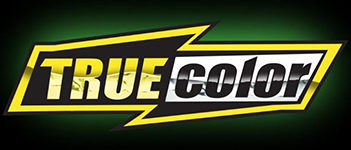Warranty Questions and Information
We get calls all the time…” Toyota says we need to use their OEM antifreeze at $42 a gallon. Do we really need to do this?”
The Magnuson-Moss Warranty Act, passed by congress, prohibits manufacturers from voiding warranties for not using a specific product.
Toxguard is pleased to provide this information for you. You are welcome to print this off for your customer or to post it directly onto your own website. Some shops even hang a framed copy on the wall of their lobby.
For your convenience, a link to the Federal Trade Commission’s official website is listed below.
Understanding the Magnuson-Moss Warranty Act
The Magnuson-Moss Warranty Act is the federal law that governs consumer product warranties. Passed by Congress in 1975, the Act requires manufacturers and sellers of consumer products to provide consumers with detailed information about warranty coverage. In addition, it affects both the rights of consumers and the obligations of warrantors under written warranties.
To understand the Act, it is useful to be aware of Congress’ intentions in passing it. First, Congress wanted to ensure that consumers could get complete information about warranty terms and conditions. By providing consumers with a way of learning what warranty coverage is offered on a product before they buy, the Act gives consumers a way to know what to expect if something goes wrong, and thus helps to increase customer satisfaction.
Second, Congress wanted to ensure that consumers could compare warranty coverage before buying. By comparing, consumers can choose a product with the best combination of price, features, and warranty coverage to meet their individual needs.
Third, Congress intended to promote competition on the basis of warranty coverage. By assuring that consumers can get warranty information, the Act encourages sales promotion on the basis of warranty coverage and competition among companies to meet consumer preferences through various levels of warranty coverage.
Finally, Congress wanted to strengthen existing incentives for companies to perform their warranty obligations in a timely and thorough manner and to resolve any disputes with a minimum of delay and expense to consumers. Thus, the Act makes it easier for consumers to pursue a remedy for breach of warranty in the courts, but it also creates a framework for companies to set up procedures for resolving disputes inexpensively and informally, without litigation.
“Tie-In Sales” Provisions
Generally, tie-in sales provisions are not allowed. Such a provision would require a purchaser of the warranted product to buy an item or service from a particular company to use with the warranted product in order to be eligible to receive a remedy under the warranty. The following are examples of prohibited tie-in sales provisions.
In order to keep your new Plenum Brand Vacuum Cleaner warranty in effect, you must use genuine Plenum Brand Filter Bags. Failure to have scheduled maintenance performed, at your expense, by the Great American Maintenance Company, Inc., voids this warranty.
While you cannot use a tie-in sales provision, your warranty need not cover use of replacement parts, repairs, or maintenance that is inappropriate for your product. The following is an example of a permissible provision that excludes coverage of such things.
While necessary maintenance or repairs on your AudioMundo Stereo System can be performed by any company, we recommend that you use only authorized AudioMundo dealers. Improper or incorrectly performed maintenance or repair voids this warranty.
Although tie-in sales provisions generally are not allowed, you can include such a provision in your warranty if you can demonstrate to the satisfaction of the FTC that your product will not work properly without a specified item or service. If you believe that this is the case, you should contact the warranty staff of the FTC’s Bureau of Consumer Protection for information on how to apply for a waiver of the tie-in sales prohibition.
As always, you should consult your own attorney for any further clarification.
http://www.ftc.gov/bcp/edu/pubs/business/adv/bus01.shtm#Magnuson-Moss
